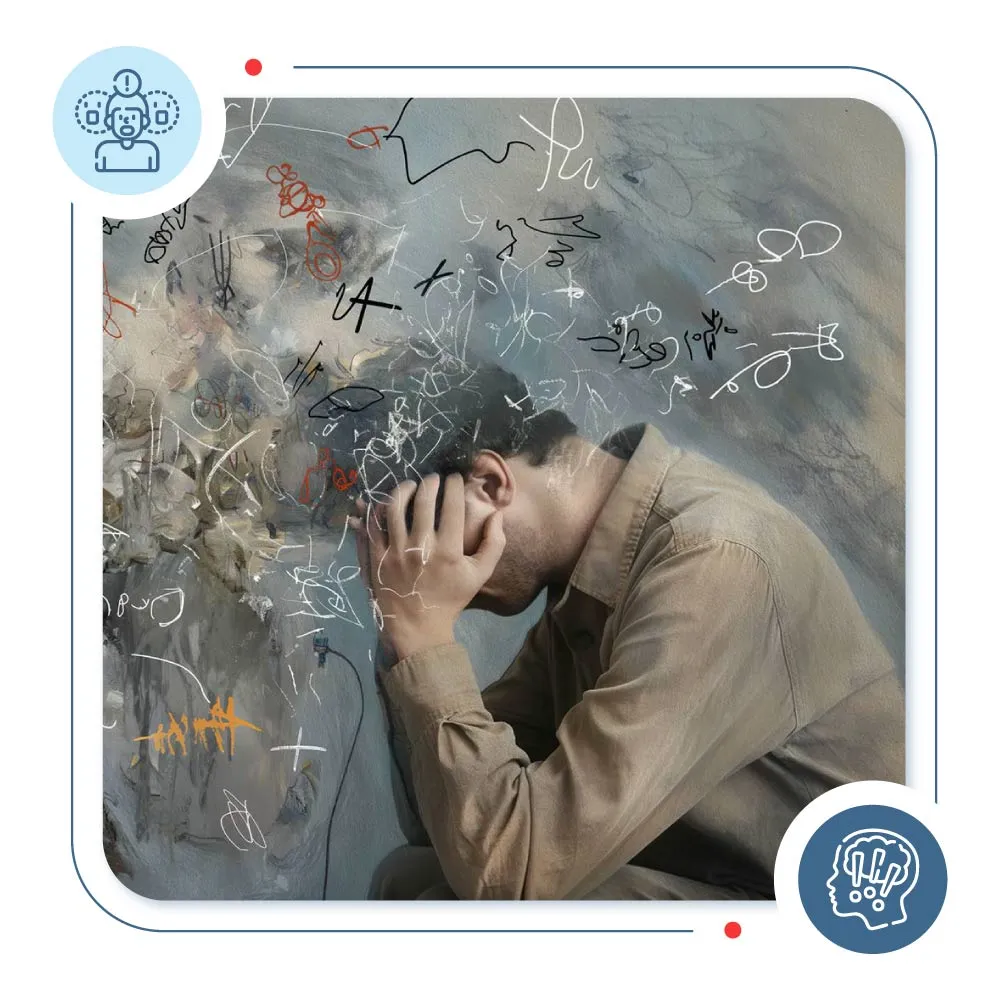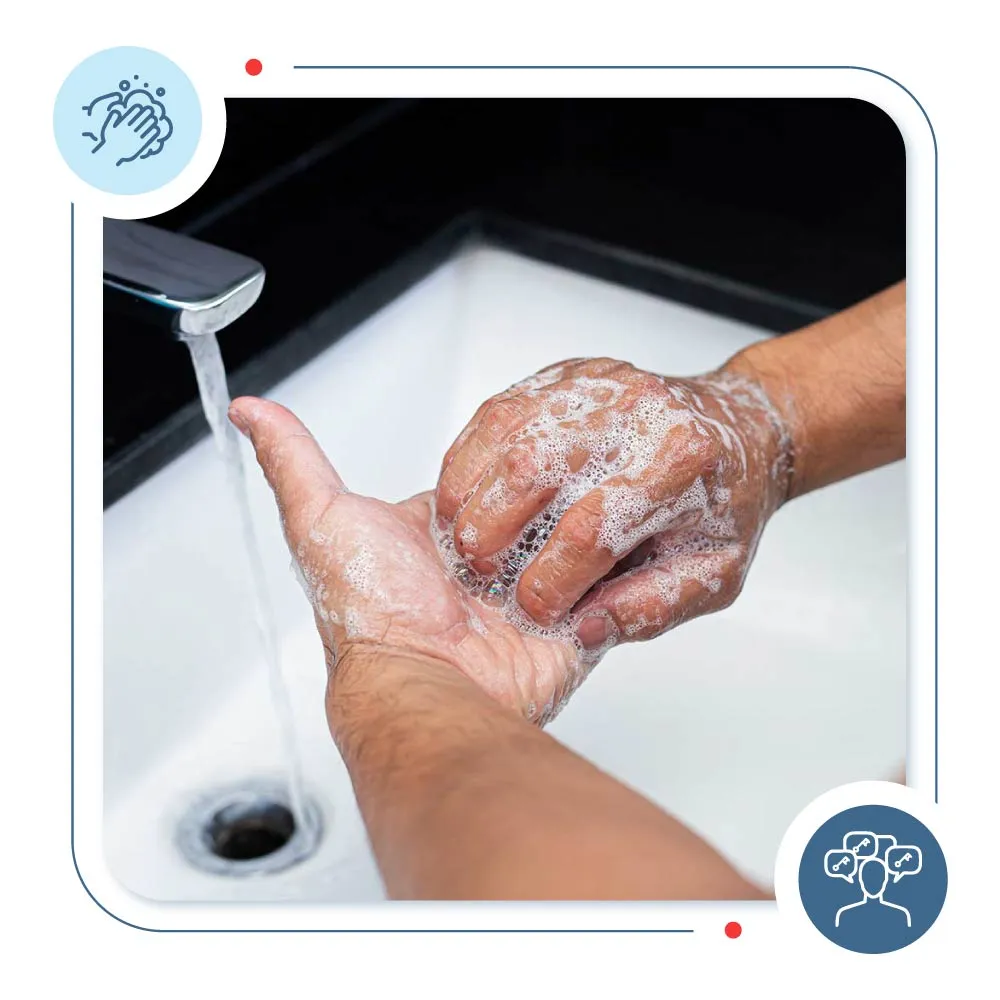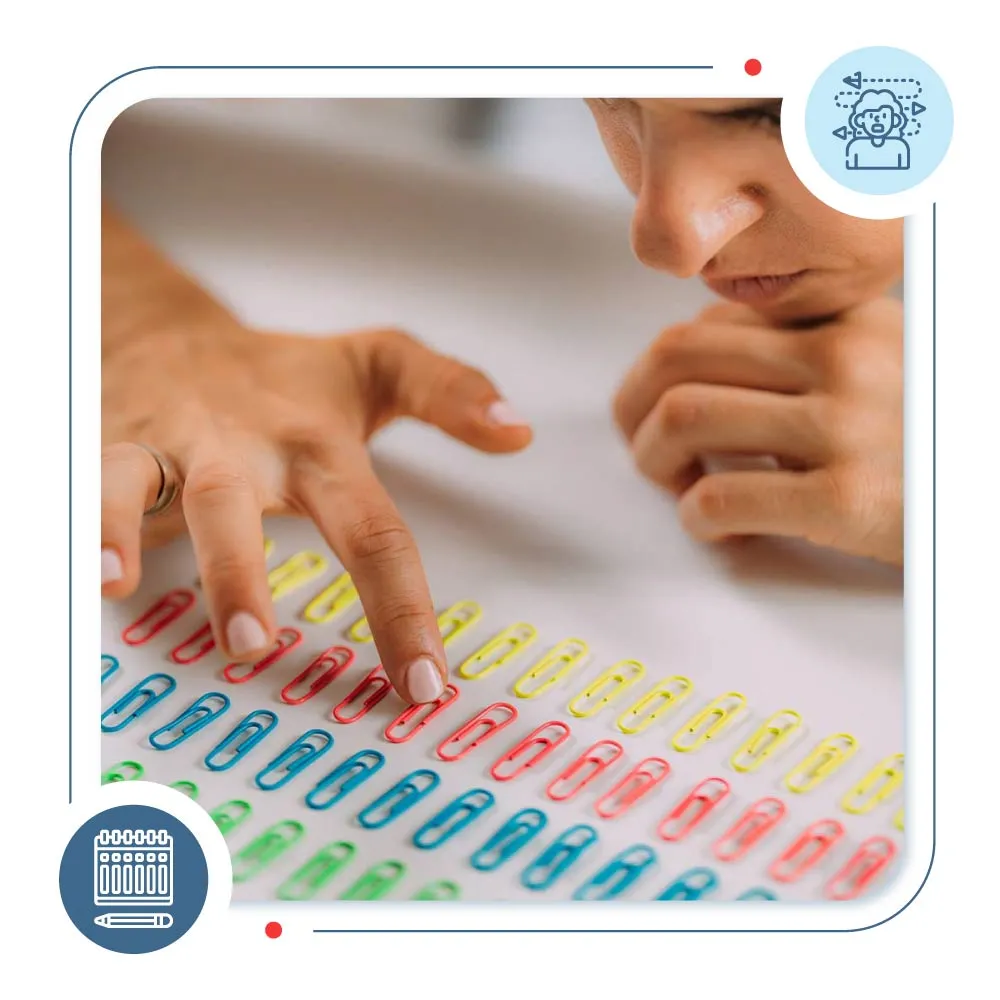Obsessive compulsive disorder

What is OCD?
Obsessive-compulsive disorder or OCD is a mental health condition which makes you experience recurring, unwanted, and obsessive thoughts and fears that are not rational. Your thoughts then make you do repetitive OCD behaviors, which are called compulsions. This cycle of thoughts and repetitive behaviors eventually consumes your whole day and energy, leaving you feeling stuck. Everyone does feel obsessed sometimes and engages in compulsive behavior in response, for example, rechecking their names on exam sheets. However, OCD differs in that you can’t control obsessive thoughts with logical reasoning, and only compulsive behaviors, which become rituals, help ease the apprehension experienced by you.
OCD can affect anyone, irrespective of age or gender. National Health Services’ survey states that OCD can develop as early as 6 years of age, but the average age of onset is around puberty or adolescence.
OCD is a chronic mental health condition that lasts lifelong. OCD symptoms may settle or worsen over time depending on the treatment strategy or stress levels in your life. If OCD is recognized earlier, its prognosis becomes better with proper management. Mid Cities Psychiatry understands your challenges, and our expert team is here to provide you with comprehensive management of OCD.

Symptoms of OCD
Understanding the OCD symptoms lets you manage your condition on time, which enhances your quality of life. Not experiencing all the symptoms of OCD altogether doesn’t mean you are not suffering from OCD. For some people, OCD symptoms may settle for a while. For others, symptoms get exaggerated at some point in their life. In general, you can experience two types of OCD symptoms, Obsessive and Compulsive.
OCD Obsessive Symptoms
OCD obsessions are constant, unnecessary, and intrusive thoughts. Obsessions are your illogical fears or mental images that make you distressed. Common obsessions that you can face are:
- A constant fear of being dirty
- Repeatedly doubting yourself
- Constant need for order or symmetry, which is also a hallmark of OCD traits
- Intrusive thoughts of harming yourself or others
- Overwhelming fear of being wrong and making mistakes
- Excessively criticizing yourself
- Adhering to a strict schedule
- Needing persistent reassurance to validate your thoughts or decisions
- Worrying about sexual orientation or gender identity
OCD Compulsive Symptoms
OCD obsessions are followed by overwhelming anxiety about things being imperfect, which is a common aspect of OCD tendencies. This makes you do repetitive OCD behaviors or mental acts, also known as compulsions, that reduce or ease the anxiety you are facing. Common compulsions or compulsive behaviors are:
- Washing your hands or taking baths again and again, like more than 100 times
- Repeatedly checking things, e.g., the stove or door locks
- Always trying to put things in order or symmetry
- Counting, taping, or repeating words or prayers unrelated to the task to prevent harm
- Performing a task a specific number of times to assure yourself it’s done
- Always following a strict ritual, e.g., skipping 2 stairs while going up
Even if your OCD symptoms seem manageable now, they can flare up at any time. Do not worry; Mid Cities Psychiatry has got you covered. We offer a comprehensive approach to diagnosing and managing your OCD tendencies.



Causes of OCD
The exact OCD causes are complex, and to date, researchers are still unable to find the specific reason why you develop obsessive-compulsive disorder or OCD. Data from the most recent research suggest the following as OCD risk factors.
- If you have a family history of OCD tendencies.
- Abnormal brain activity (in frontal cortex or subcortical brain regions). That is why OCD may be associated with disorders involving these brain areas, such as Parkinson’s disease, epilepsy, or Tourette’s syndrome.
- If you experience significant stress or trauma, specifically in your childhood.

Treatment Options for OCD
Mid Cities Psychiatry always tries to provide you with evidence-based assessment and treatment options. We address all levels of OCD, from mild to severe cases. Mid Cities Psychiatry offers you comprehensive treatment modalities for OCD management, which include the following:
➤Psychotherapy
Psychotherapies are talk therapy sessions between you and our experts. This is the most common approach taken for managing your OCD. Our experts reduce your dependence on compulsive behaviors. Let Mid Cities Psychiatry help you comfort your fears.
➤Cognitive Behavioral Therapy
Our CBT sessions help you manage your thoughts. Our expert therapists assist you in understanding your irrational imaginations and fears. You are taught to learn the link between your thoughts and your actions. You’ll eventually break your negative thought patterns and replace them with more productive ideas.
➤ Exposure and Response Prevention (ERP)
One form of CBT is ERP therapy. ERP resets your brain in a way that responds differently to obsessive or intrusive thoughts. Our expert therapists guide you to face your fears in small, manageable steps. In this way, we make you learn to tolerate the associated anxiety. For example, if you have a fear of contamination, our team may ask you to touch the doorknobs or curtains. Instead of washing hands afterwards, we help you sit in an uncomfortable and anxious situation by practicing relaxation techniques. When nothing bad happens to you without washing your hands, you eventually learn that obsessive thoughts are just in your mind and that reality differs.
➤ Acceptance and Commitment Therapy (ACT)
ACT is also a psychotherapy for OCD obsessions. It helps you take control of your mental health again. During the ACT session, you learn to accept that obsessive thoughts are just thoughts and they don’t become reality. You understand and acknowledge their presence without acting on them. This way, Mid Cities Psychiatry enables you to pursue what truly matters.



Medications
If you don’t experience any improvement in your OCD symptoms with talk therapy, medications are the next step in OCD treatment options. Medications can be given alone or in combination with talk therapy. Medical treatment can take a few months to show its effects. You should keep following the provided treatment guidelines to reach to desired effects. If you don’t notice any improvement in OCD symptoms over several months, contact us for a medication review.
- Selective Serotonin Reuptake Inhibitors (SSRIs) block the reuptake of serotonin, a chemical that regulates your mood and behavior. This increases the levels of serotonin in the brain, which helps reduce the OCD symptoms.
- Tricyclic antidepressants (TCAs) block the reuptake of serotonin as well as norepinephrine, which stabilizes mood and behavior.
You are advised not to abruptly stop or skip several doses of antidepressants, even when you feel much better about your symptoms. Doing this can cause a sudden change in neurotransmitter levels in your brain, which leads to withdrawal-like symptoms. You may also experience a relapse of OCD symptoms. Common side effects related to these medications include:
- Certain physical complaints, such as diarrhea, constipation, or headaches.
- Trouble sleeping
- Dizziness
- Feeling extremely anxious
- Suicidal thoughts

New Treatment Options for OCD
Mid Cities Psychiatry offers you innovative options for managing OCD if you have not experienced any improvement in your OCD symptoms with other treatment options.
Transcranial Magnetic Stimulation (TMS)
TMS is a kind of brain-stimulating treatment. It is an FDA-approved and noninvasive approach to treat your OCD. We place an electromagnetic coil on your scalp near your forehead. This coil generates a magnetic field that stimulates your brain’s nerve cells and reduces your OCD symptoms.
Deep Brain Stimulation (DBS)
DBS is an invasive procedure. We place electrodes in certain areas of your brain with the help of surgery. These electrodes then produce an electrical current that resets your brain’s electrical activity. This also controls abnormal electrical impulses in your brain. Although FDA-approved, DBS is only recommended for adults older than 18 years and does not respond to any other treatment options for OCD.
FAQs
01
How is OCD diagnosed?
OCD diagnosis is made purely by clinical and psychiatric evaluation. DSM-5 criteria (Diagnostic and Statistical Manual of Mental Disorders) are used for the proper diagnosis of OCD and its severity.
02
Can I outgrow OCD?
Actually, No. OCD is a lifelong condition. But it can be effectively managed with medications, talk therapies, or a combination of both.
03
Am I a perfectionist or have OCD?
Being a perfectionist means you desire order and high standards. OCD differs from perfectionism, where your desire for order and symmetry makes you do compulsive tasks that are repeated and consume your whole day and energy. You do not enjoy these tasks and end up feeling extremely exhausted.
05
What is ‘Pure O’ obsessions in OCD?
This term is misleading because this type of OCD also has obsessions along with compulsions. The compulsions are usually internal and not shown in habits. For example, you keep reassuring yourself, ‘I would never do that,’ or you may avoid certain situations that trigger your OCD tendencies, like avoiding standing near stairs.
Real Stories, Real Recovery





We provide a comprehensive care provision for the most common mental issues people struggle with, such as PTSD, ADHD, OCD, anxiety, depression, sleep disorder, schizophrenia, and numerous other mental health conditions.





